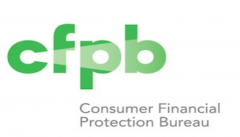
National Urban League Policy Institute Applauds Proposal to Simplify Mortgage Disclosures
Misleading and Inaccurate Information Helped Fuel Current Mortgage Crisis
Washington, DC (June 20, 2012) -- The National Urban League Policy Institute today praised the effort by the Consumer Financial Protection Bureau (CFPB) to simplify mortgage disclosures by combining the information required by the Truth in Lending Act (TILA) and the Real Estate Settlement Procedures Act (RESPA).
 In testimony before the House Subcommittee on Insurance, Housing and Community Opportunity hearing, entitled: “Mortgage Disclosures: How Do We Cut Red Tape for Consumers and Small Businesses?,” Chanelle P. Hardy, Senior Vice President for Policy and Executive Director of the Policy Institute called the current mortgage disclosure rules “confusing and misleading” and said they had played a role in the current mortgage crisis.
In testimony before the House Subcommittee on Insurance, Housing and Community Opportunity hearing, entitled: “Mortgage Disclosures: How Do We Cut Red Tape for Consumers and Small Businesses?,” Chanelle P. Hardy, Senior Vice President for Policy and Executive Director of the Policy Institute called the current mortgage disclosure rules “confusing and misleading” and said they had played a role in the current mortgage crisis.
Hardy said a unified approach to mortgage disclosures would “reduce the frequency of poor financial decisions by consumers, many of whom lack the sophistication to ‘read between the lines.’”
Through its nationwide network of 97 affiliates, the National Urban League provided direct housing counseling to more 10,000 families in 2011. Hardy said Urban League counselors have seen firsthand the damage done at the point of loan origination with “hopelessly confusing documents and sometimes deliberately abusive and malicious lending agents.” She added that there is substantial evidence that African-American and Latino borrowers who were qualified for prime loans were steered into loans that were overprices and unaffordable.
“In our view, the CFPB’s proposal . . . to simplify and to consolidate the information required by TILA and RESPA represents a critical step toward combating and limiting this type of abuse and confusion that contributed, in no small part, to the current foreclosure crisis.” Hardy said.
Hardy added that better consumer education is a significant part of the solution to the recurrence of the current housing crisis, and streamlining RESPA and TILA disclosure forms are a critical component to that solution. In addition, she offered three recommendations to help ensure that the CFPB is successful in its efforts to eliminate red tape for qualified borrowers regardless of race, geography, or economic class, while also protecting their rights as consumers.
- Require that all settlement and financing terms be communicated well in advance of settlement, with clear and consistent language. Allow for the corrective redress of violations including remedy to the affected borrower.
- Require that client disclosure and acknowledgement forms be completed by the lender not unlike the ‘Know Your Client’ protection provisions mandated in the securities investing marketplace. This would give uniform structure to the TILA ‘Ability to Repay’ requirement.
- Draft Qualified Residential Mortgage rules requiring all securitized residential loans, qualified and other, feature complete and valid ‘Know Your Borrower’ documentation in addition to other prescribed forms of risk retention.
About the National Urban League
The National Urban League is a historic civil rights organization dedicated to economic empowerment in order to elevate the standard of living in historically underserved urban communities. Founded in 1910 and headquartered in New York City, the National Urban League spearheads the efforts of its local affiliates through the development of direct service programs; and through the public policy research and advocacy activities of the National Urban League Policy Institute in Washington, DC. Today, there are nearly 100 local Urban League affiliates in 36 states and the District of Columbia, providing direct services that impact and improve the lives of more than 2 million people nationwide.
Contact: Pamela Rucker Springs
202-629-5757










